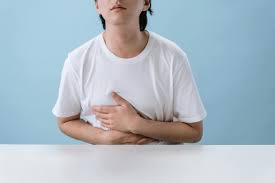Stomach cancer is a serious digestive system disease associated with multiple risk factors. Helicobacter pylori infection is considered one of the primary high-risk factors, with about 90% of stomach cancer patients having been infected with Helicobacter pylori. Below is detailed information about the high-risk factors for stomach cancer and preventive measures:
High-Risk Factors for Stomach Cancer
- Helicobacter pylori Infection:
- Helicobacter pylori is a common bacterium that can cause chronic gastritis and peptic ulcers, and long-term infection may lead to stomach cancer.
- About 90% of stomach cancer patients have been infected with Helicobacter pylori, showing a strong correlation between the infection and stomach cancer.
- Dietary Habits:
- High-Salt Diet: A high-salt diet can damage the stomach lining and increase the risk of stomach cancer.
- Pickled and Smoked Foods: These foods contain nitrites and nitrosamines, which are closely associated with the occurrence of stomach cancer.

People with chronic gastritis or peptic ulcers have a higher risk of stomach cancer. Illustrated by Pexels.
Lack of Fresh Fruits and Vegetables: Vitamins and antioxidants in vegetables and fruits help protect the stomach lining and reduce the risk of stomach cancer.
- Smoking and Heavy Drinking:
- Smoking and excessive drinking can damage the stomach lining and increase the risk of stomach cancer.
- Family History:
- Having a family history of stomach cancer increases the risk.
- Chronic Gastric Diseases:
- People with chronic gastritis or peptic ulcers have a higher risk of stomach cancer.
- Age and Gender:
- The risk of stomach cancer increases with age.
- Men are at higher risk of developing stomach cancer than women.

A high-salt diet can damage the stomach lining and increase the risk of stomach cancer. Illustrated by Pexels.
Preventive Measures
- Detection and Treatment of Helicobacter pylori Infection:
- Regular check-ups, including testing for Helicobacter pylori. If diagnosed, antibiotic treatment should be undertaken to eliminate the infection and reduce the risk of stomach cancer.
- Healthy Diet:
- Reduce salt intake and avoid pickled and smoked foods.
- Eat more fresh fruits and vegetables to ensure sufficient vitamins and antioxidants.
- Avoid overeating and maintain a balanced diet.
- Quit Smoking and Limit Alcohol Consumption:
- Quitting smoking and limiting alcohol intake can help protect the stomach lining and reduce cancer risk.
- Regular Check-Ups:
- For those with a family history of stomach cancer or other high-risk factors, regular gastroscopy and related tests are recommended to detect and treat potential issues early.
- Maintain Healthy Lifestyle Habits:
- Maintain a healthy weight and avoid obesity.
- Exercise regularly to boost the immune system.
- https://news.immigration.gov.tw/NewsSection/Detail/400474F7-C246-43C4-B5BC-DAD598D8384E?lang=TW
Conclusion Understanding and managing the high-risk factors for stomach cancer are crucial for prevention and early detection. Helicobacter pylori infection is one of the primary high-risk factors, so testing and treating this infection are vital for reducing the risk of stomach cancer. Additionally, healthy dietary habits, quitting smoking, limiting alcohol, and regular check-ups are effective preventive measures. Maintaining good lifestyle habits and proactive health management can significantly lower the risk of developing stomach cancer.







